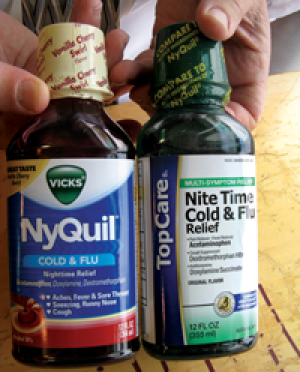
This is an interesting article because it affects all of us. We have all been sick or had really bad allergies before. When you go to the local pharmacy and you can buy a brand name medicine such as Claritin or Nyquil, but you can also buy the generic store brand that has some corny name like Wal-itin or CVSquil. These generic medicine have the same active ingredients but are usually much cheaper. This article touches on how the US Supreme Court is now considering changing brand name companies ability to patent medicines and compensate generic dealers. When brand name companies do this the consumer is greatly affected since they are forced to pay the increased price. Generic medicine can offer the same product at almost a third of the price since they do not need to pay for expensive ad campaigns. This relates to Dr. Farmers work in “Mountains Beyond Mountains” where he works to get medicine at a lower cost to the people who need it. Do you think that it is right for companies to work together making it so consumers have to pay more? Is it constitutional to prohibit a company's right to patent their product? I think it is a tough decision because consumers should have the right to cheaper medicine but it is unconstitutional to prevent a company from patenting their product. Its similar to when the iron lung was invented. When John Emerson created a cheaper version of the iron lung, Phillip Drinker sued him. This charade is common in the pharmaceut
ical field and the Supreme Court's decision should put an end to it.
Brendan, I think that you make an interesting point about the “values conflict” as Mr. Nelson would say it, between the government regulating drug prices to help those get access to drugs who were too poor to afford them, and the idea of regulating a part of the free market, which could be considered unconstitutional. This relates to Farmer’s ideas of politics and public health/medicines going together because for example the first world (rich countries) don’t value treating MDR-TB patients as much as treating regular TB patients in third world (poor) countries because of its cost efficiency. Yes, it is a LOT more expensive to try the latest/strongest drugs on people with MDR-TB like we saw today in class, but it is worth it in the long run. After all, what is the value of a human life? Do we measure it by its ability to pay for public health services? It’s cost efficiency? Its long and short term solutions? In theory, we’d like to say no. But in reality, as Farmer points out, this is not always the case. Especially with something as volatile as MDR-TB which could infect many more people and possibly become epidemic, I think the government and pharmaceutical companies need to reconsider their values and work together for the good of humanity, not their wallets.
ReplyDeleteThis is an interesting topic because on one side it doesnt seem ethical to patent a product so a cheaper version cant be made ending in a lot of people unable to afford medicine they need. At the same time anyone has a right to patent their product and they should be able to if they want to. I think the right thing to do is to not patent your product. However some companies just will not care and just want as much money as possible. While that should be acceptable there are still other ways to show a company that this isn't right. Boycotting a brand who does this could be a way to show that company that it isn't right and the people dont agree. Hopefully companies dont take the easy way out to make more money but think about the people first.
ReplyDelete